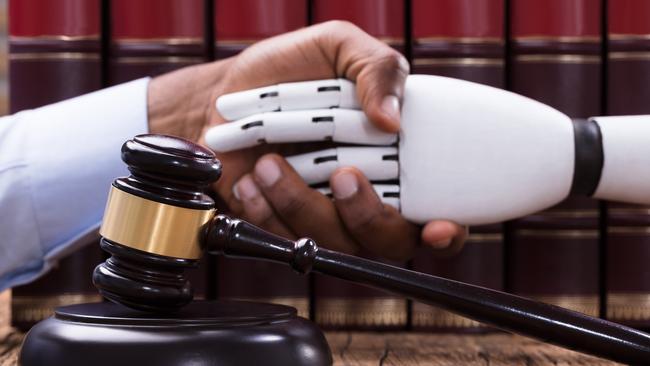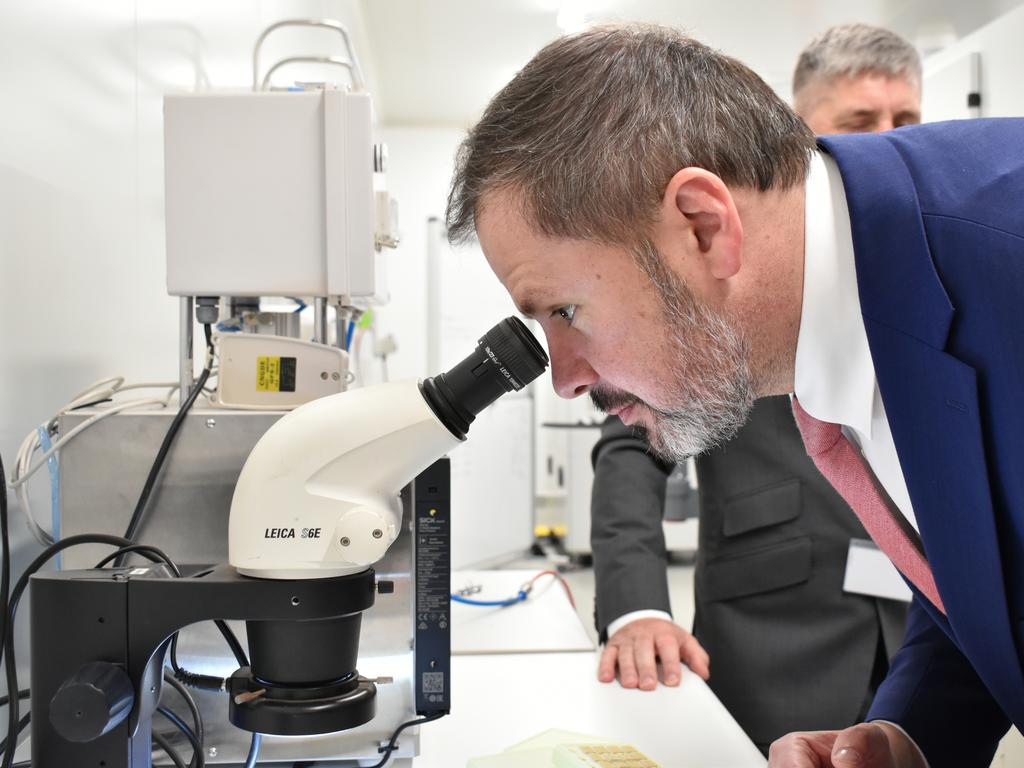‘The camera does lie’: Concerns over AI in NSW courts
The NSW Law Society chief will announce a taskforce to guide the way artificial intelligence should be used by solicitors, and to advise government on regulation.

Burgeoning concerns about artificial intelligence will be front and centre when NSW Law Society chief Brett McGrath opens the law term on Wednesday night, using his speech to announce a legal taskforce to guide how new technology should be used by solicitors, and to advise government on regulation.
Mr McGrath said he had deep concerns about the impact AI would have on the legal profession, warning lawyers that “the camera does lie”.
“There are a lot of pitfalls with using Chat-GPT and we’ve seen some of those concerning stories coming out about the use of AI and the law already,” he said.
“One thing as solicitors we need to keep in mind is that we have a paramount duty to the administration of justice. That includes a duty to act competently and diligently in service to our clients and our duty to the court.”
At the Opening of the 2024 Law Term dinner on Wednesday night, Mr McGrath will announce he is establishing a taskforce to help solicitors navigate the advent of AI, understand “ethical issues” surrounding it, and advise government as the space becomes more regulated.
“Ultimately the question is: how will this affect our ability to deliver sound legal advice to our clients, advocate for law reform, and assist the courts?” he will say.
“That’s why the Law Society will step up its support for solicitors in this new era of technology. As endorsed by council last year, we will help guide the profession in its approach to AI.
“We will establish an AI taskforce for guidance, policy, best practice, and education.
“It will identify innovation and technology trends and provide guidance as to how we can best use them. It will do so by contributing to policy and reform recommendations, working with Privacy and Data Law, and Public Law Committees.”
Courtrooms across the world are already grappling with next steps to employ AI to boost efficiency, while still balancing the administration of justice.
Britain is developing an online court that would allow offenders to enter a guilty plea and produce a predetermined penalty without the involvement of a magistrate, seeing a matter be dealt with in an entirely automated way with no human oversight at all.
Earlier this year, a Colombian judge used Chat-GPT to determine whether an autistic child’s insurance should cover the full costs of their medical treatment, by posing a question to the chatbot: “Is an autistic minor exonerated from paying fees for their therapies?”
Australian courtrooms are using AI to optimise efficiency, with NSW judges using an automated “Bail Assistant” to help untangle complex legislation.








To join the conversation, please log in. Don't have an account? Register
Join the conversation, you are commenting as Logout